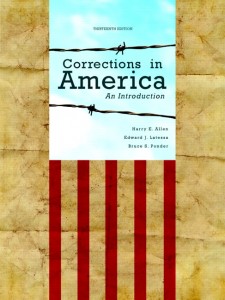University of Louisville Masters in Engineering Management: Interview with Tim Hardin

- Dr. Tim Hardin, MEEM Program Director
If you like to focus on something over a small period of time, get it done, and then move on, the new Masters of Engineering in Engineering Management (MEEM) program at the University of Louisville (UofL) is designed for you.
In the online MEEM program, you can power through a different course every 6 weeks! Dr. Tim Hardin, Program Director, said that “the students see the 6 weeks turnaround as a flexibility rather than a limitation. You can complete two courses in a term, or if your next few weeks will be busy, you can take the next rotation off. You can always enter back into your next course at one of our 5 entry points.”
If you think that the 6 week time frame is a little restrictive then perhaps this program isn’t for you. But that’s not what the school is finding.
“We have had feedback saying that with non-structured courses like say some MOOC, students fall behind. They have no skin in the game. But in our MEEM program, it’s hard to get more than a week behind without repercussions. I’ve had many students asking for next week’s material so they can work ahead. It’s a refreshing change. The quick pace collects a different crowd,” explained Hardin.
“However, we have also had students realize that they are unable to meet the required time frame. It is good for a student to come to that decision early on. The accelerated online learning is not for everyone,” cautioned Hardin.
Though the MEEM program existed on-campus since 1972, it has recently transitioned the offering online in August, 2013. “The program curriculum covers the same material; we still use the same textbooks. However, the assessment quizzes and exams are different. Those have been replaced with project papers and reports. This strategy helps alleviate some of the possible issues with identity authentication and cheating,” said Hardin.
“The move to online delivery was a little accidental and a little bit planned. I was interested in online learning and the school started to support the medium more and more. We asked our industrial advisory board about switching over and it was a unanimous ‘yes’ from the board and our students,” Hardin clarified.
You can still work on your own schedule as the courses are asynchronous. This is vital as the student body crosses about 14 time zones. The student base even has a few members of the U.S. Armed Forces deployed in the Middle East and Asia. “I think the Blackboard interface we use as a learning platform makes it easier on our students serving abroad.”
Blackboard, the popular online course platform service, allows for PowerPoint voice over videos or webcam videos, assignments, grades, and student-student/student-instructor communications. However, one-on-one phone calls can be scheduled if needed.
As for online teaching pedagogy, the University of Louisville has the full support of the Delphi Center for Teaching and Learning. Delphi staff provide instructional design and quality assurance support for online learning programs at UofL. Professors can take training courses from Delphi which includes best practices. They also offer a voluntary review process to assess compliance to teaching and learning best practices. However, the MEEM instructors will be given a few more semesters under their belt before the reviews will be requested.
Naturally, new course platforms can be associated with a few kinks that need to be ironed out. Though no issues have been noticed as of yet, best practices and technology, such as those that exist to curb cheating and assist students with disabilities have yet to be perfected. This is however, top priority for the online program team. As the MEEM online program gains momentum, more such best practices will be implemented and tested in the current format of the program.
To learn more about enrollment and graduation requirements for the Master of Engineering in Engineering Management Online at University of Louisville, visit our program page.
Written by Shawn Wasserman of Engineering.com.


